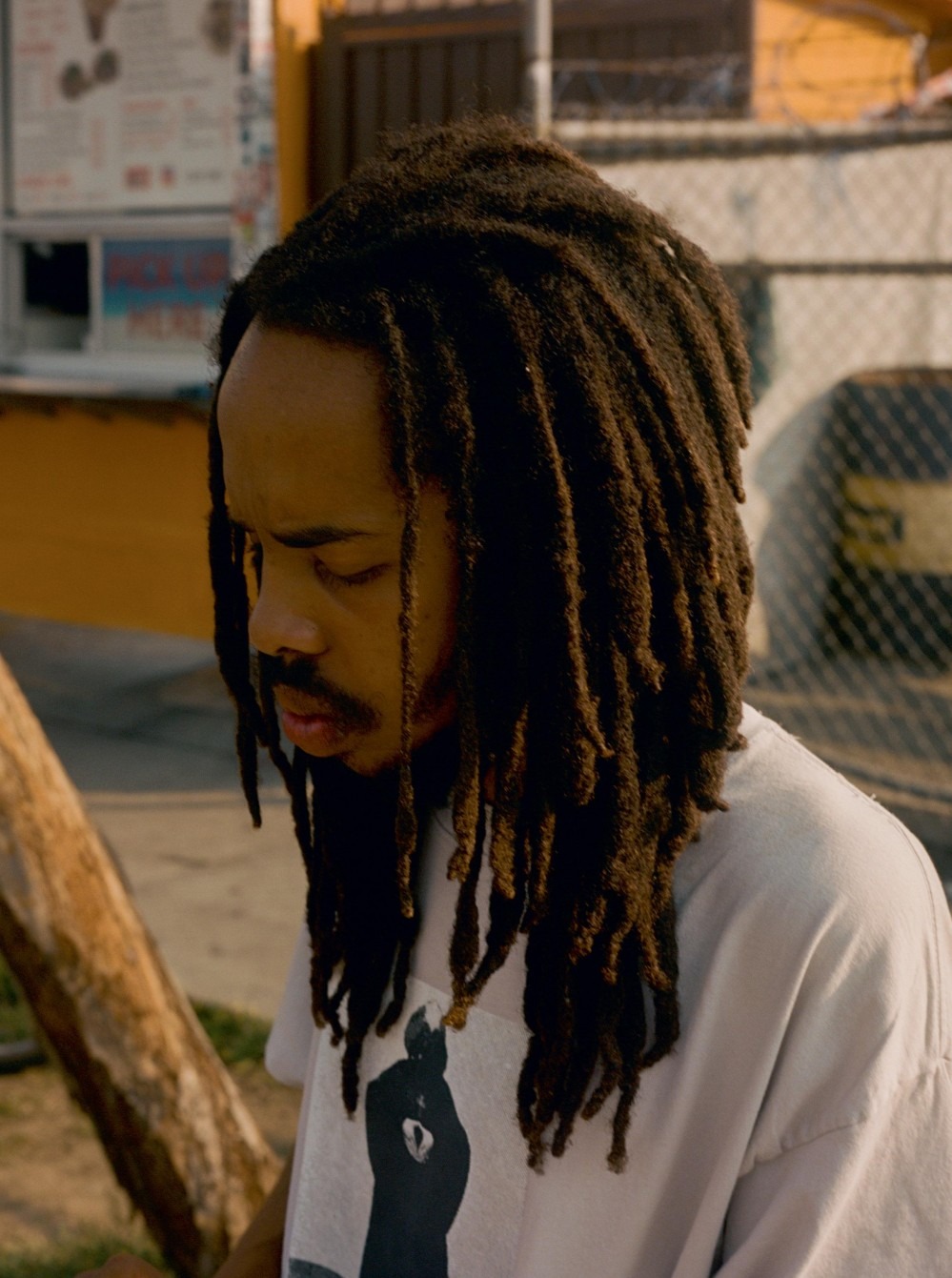Earl Sweatshirt is a lightning rod, an artist deeply in tune with the energies around him. In the constant flux of 2020, this has pushed him harder than ever.
– – –
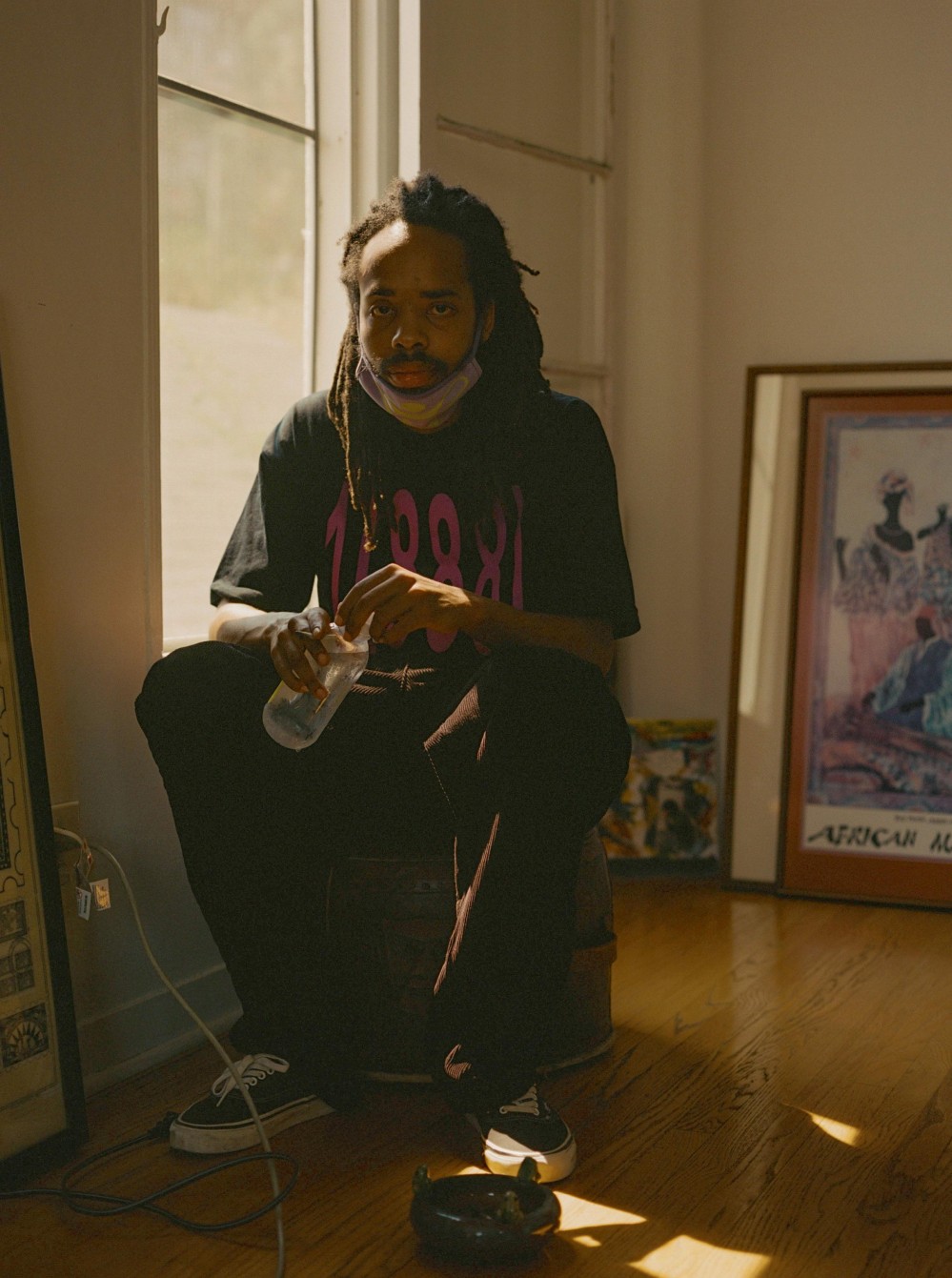
– – –
When Clash tracks down Earl Sweatshirt he’s at home in Los Angeles. The city has been in and out of lockdown – right now, the inhibitions have been lifted, so he’s making the most of his freedom while he can. The day before he went hiking, but more than anything else he’s been thinking. “It’s been… turbulent,” he says. “There’s been a necessity to clean house, and make sense of a lot.”
It’s been a year of huge transition for a great many people, Earl included. Working with his new label Warner Music he released ‘Feet Of Clay’, another step on his aesthetic evolution. It hit hard, both sonically and lyrically, and bore signs of his further maturation. “My processes have – at times – been different. Especially when I was younger,” he reflects. “I would rely on spirit and faith for a lot… because I could. When you don’t know the workings of the trick, it seems like magic. And as you start to get older you learn more, so you start to learn the inner workings of things.”
Earl’s music and his life have long been intertwined – they ease in and out of sync, while forever moving forwards. “What I’ve found,” he continues, “is that coming into more clarity in life, goes back into more clarity for the music.”
He notes: “To me, it’s kind of ironic or laughable that it could be anything else. Art is definitely commentary and reporting on life.”
– – –
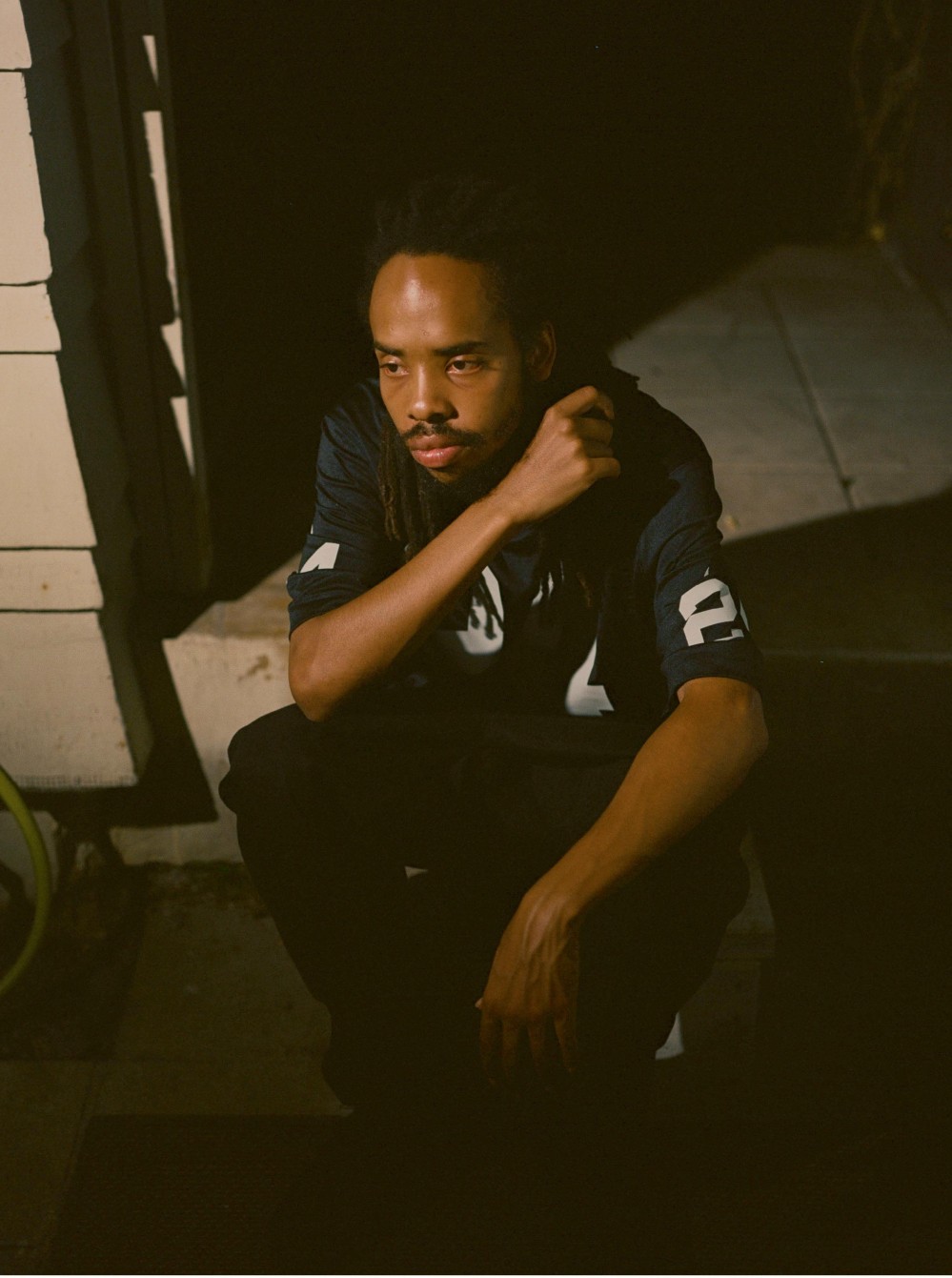
– – –
Drawing a line under the project, Earl is already looking ahead. His fledgling imprint Tan Cressida has become a fully fledged label, a hub for challenging arts – “for human art,” he notes – inaugurated by Black Noise. “I just want to put out good music. Not to make it seem to simplistic, but I want to put out good music, in a healthy, non-exploitative manner. I want to put out good people’s music. It’s a romantic idea.”
It’s also a reaction to his own experiences – as a young rapper coming up, Earl continually found frustration with the industry gatekeepers who so often barred his entrance. “Fuck yeah, bro!” he exclaims. “I feel like part of the story with my shit has been my frustrations with the industry. Learning its nature as a young artist. I’m in a really ideal position because I haven’t sold my soul. But I have a big enough platform to help other people.”
He’s already looking forwards. Earl has been working with a batch of material recorded last Fall, a period he describes as slightly anarchic, one where he stopped smoking weed, but started drinking more. “Things were more chaotic for me in my life,” he admits. “Whereas now… quarantine has forced me to think about how I really want to spend my days. In my house, not being able to distract myself with a million other things. So I’ve been kind to myself. I applaud myself for being able to accomplish simple shit – like cleaning my house. I’m just having a regular day, bro.”
– – –
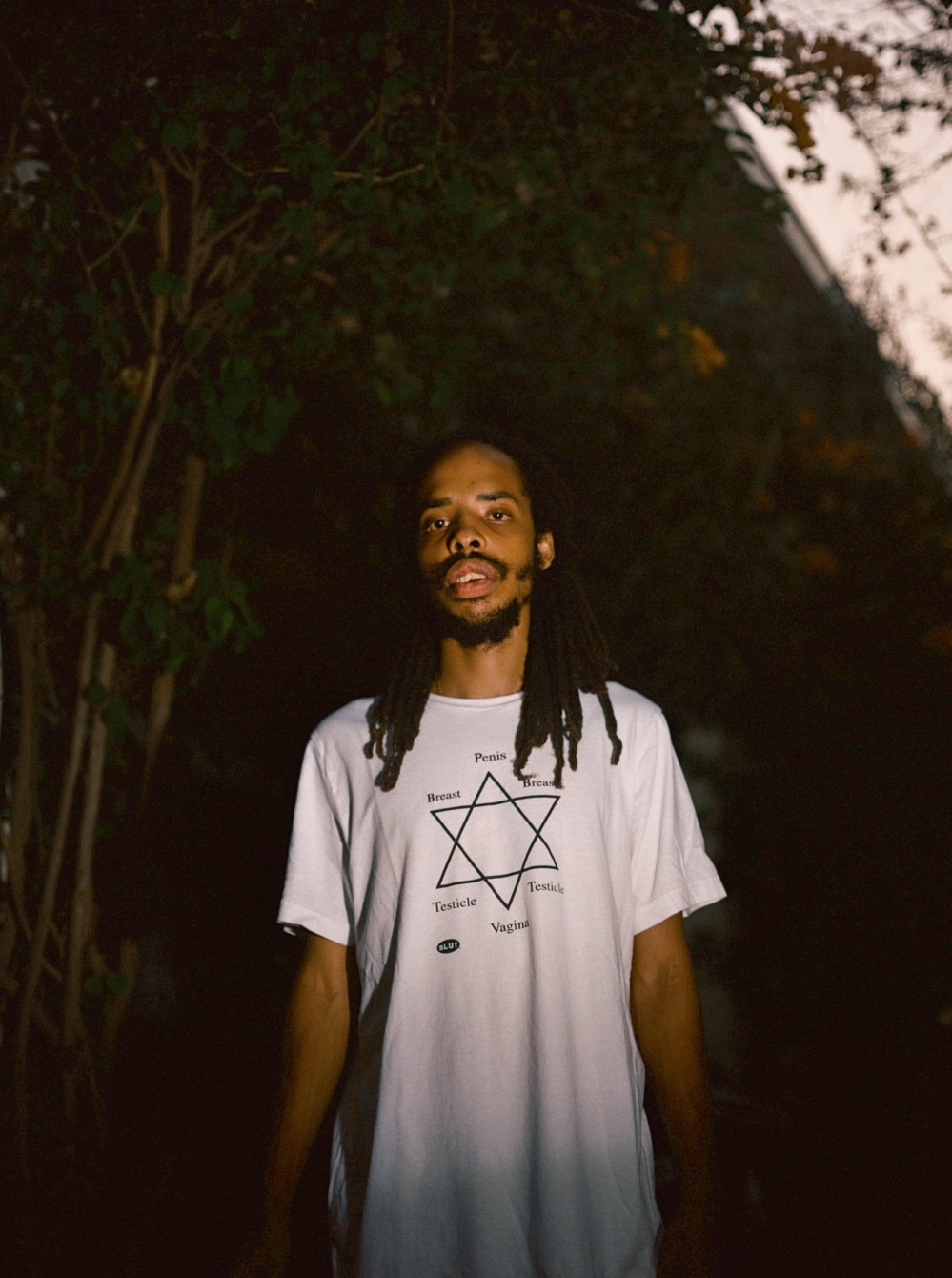
– – –
One aspect of Earl’s view on art that has never changed is his ability to push against his most recent work. It charges him with a certain degree of energy, but it can also – sometimes – lead to some severe self-criticism. A few days before our conversation the rapper uses Twitter to critique ‘Feet Of Clay’ before removing his words. “As much as I’d like it to be, Twitter is not a place for nuanced discourse,” he shrugs. “And I had forgotten the goddamn showtime rule: no one knows you’re fucking up… until you say something onstage! I was like, I fucking spilled the beans!”
“I don’t think I’m hard on myself, I think I’m real,” he adds. “I think the nuance gets lost in this thing where everything has to be staunchly positive or negative. It’s not very dynamic. That’s what I’m saying: I think my read on my last thing was honest.”
Citing his unhappiness with the final mix, Earl reflects on what he had been trying to say on the record, the words he had strived to reach. “People don’t deal with that level of clarity at a societal level,” he says, “so it means that shit can be construed as psychedelic, or abstract. When in fact it’s the exact opposite. It’s like, there’s a lot of things that I’m saying at high speed. It’s very dense. They’re stacked on one another. So it can be very overwhelming. But I think you need a good tour guide through a crazy place, to move into these labyrinths of people’s spirits and minds.”
Earl Sweatshirt was forced over time to become his own tour guide. We talk a lot about self-sufficiency, with learning to accept and utilise the skills you have, in search of some often undefined ends. “Self-sufficiency is getting yourself what you need,” he states. “And sometimes what you need is help from other people. You can definitely get in the way of yourself by not letting people in.”
– – –
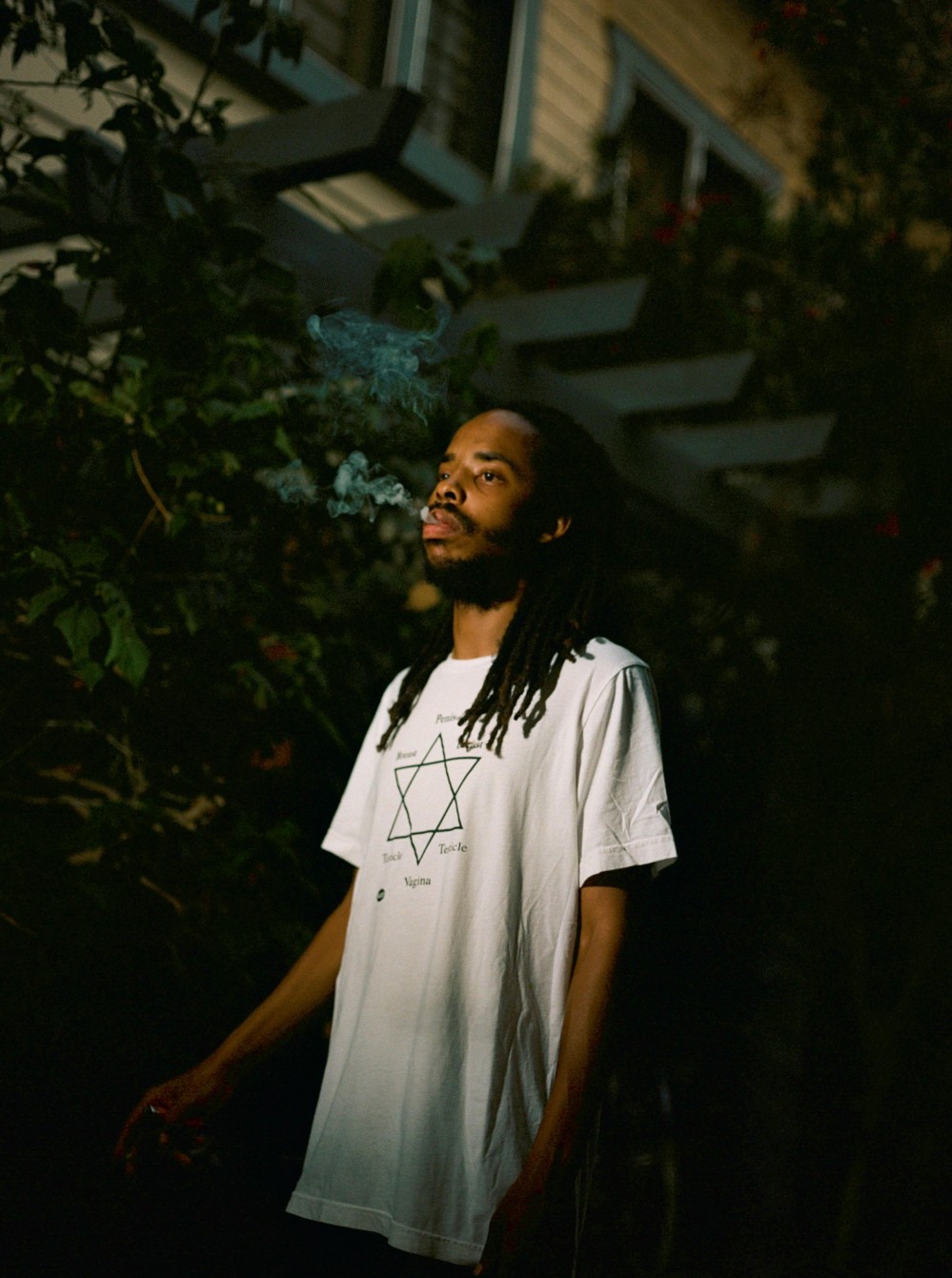
– – –
It’s something he’s come to accept over time. Tan Cressida is geared at being a collaborative experience when needed, while also affording artists space to pursue singular visions. He’s not in charge per se, but he is leading it through example. “People haven’t been offered too many visions of what something else looks like out here,” he explains. “That’s basic capitalism, bro. They tell you, there is no other way. That’s one of the first and most powerful lies. They tell you to play the game. Play stupid games, win stupid prizes! You haven’t even evaluated which game you’re playing.”
Throughout our conversation it’s clear that Earl is seeking a forward path, both in his art and his life. At times, it feels like Clash is the sole witness to a philosophy lecture, as he cross-references Egyptian theology with John Nowles’ post-modern novel The Magus. At times, his sentences spill beyond words, the meaning temporarily out of his grasp – but then he pauses, breathes, and somehow it comes into focus.
One of the things that brings him focus is skateboarding, something he returned to in a passionate way during summer. “Skateboarding helps me make sense of the world,” he insists. “It’s serious problem solving, and precision. It’s like a breath control exercise, as well. Tension and release. It can be like meditation. You can get into a trance thing if you like going for it. In terms of battling with a trick, and being able to make slight adjustments… it’s a super psychological thing, bro. So much of skateboarding is about body language stuff that you have to undo in your head.”
– – –
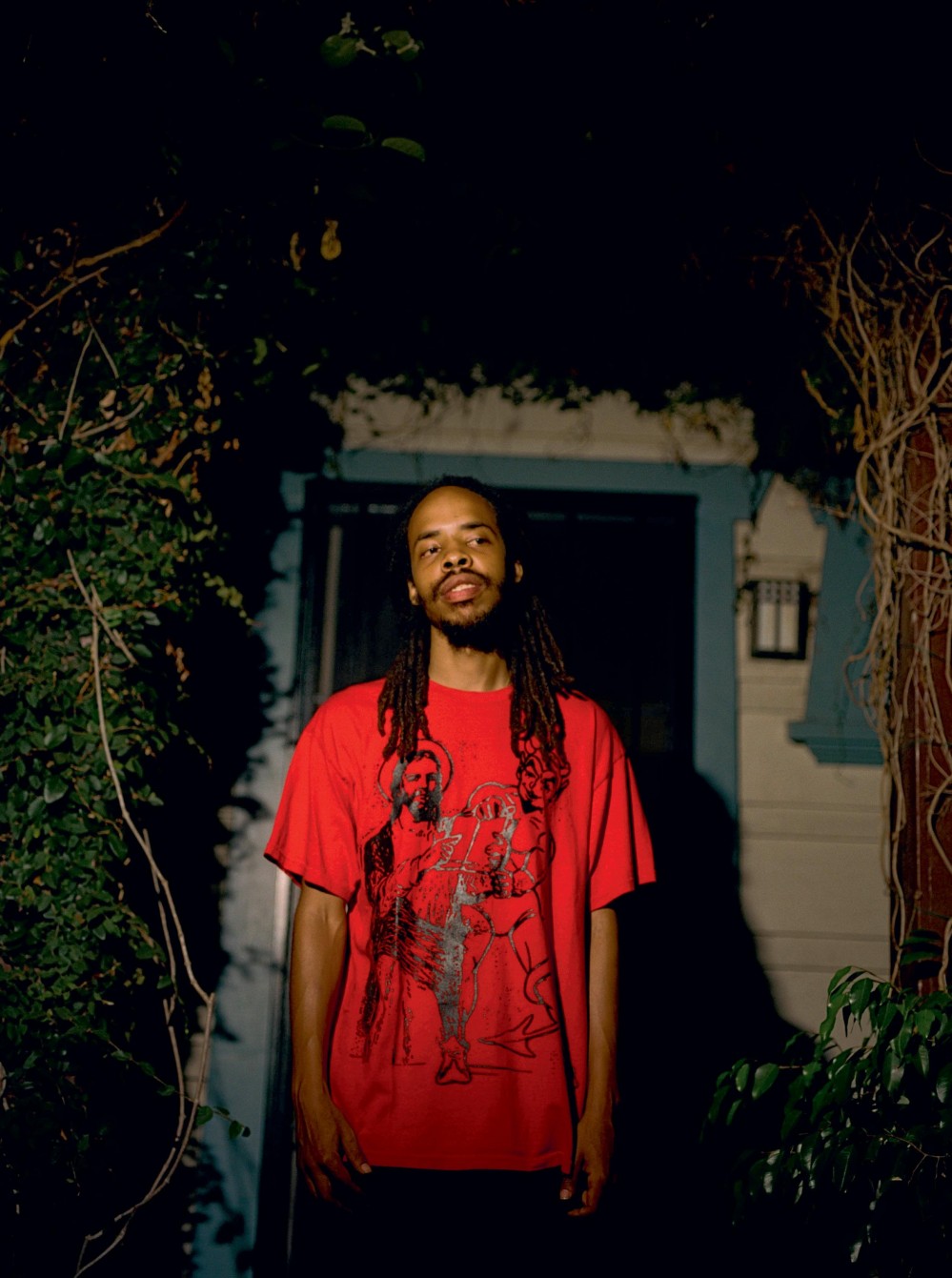
– – –
Escaping with his board seems to give Earl space to think, allowing the thoughts to settle in his mind. It’s unlocked something, too, allowing him to reach further down into himself, and into others. “People are dynamic,” he insists. “People can change. Motherfuckers forget this. And you can change really fast – that’s the other bit that people forget. Change is looked at as some super arduous task, but if you’re humble enough to allow yourself a eureka moment you can be totally different than you were three minutes ago. Just look at what’s happening with rap music as a culture. How many times have we said we would staunchly not adopt something, and then we did? People are dynamic. Culture is dynamic. Let’s have these eureka moments and change for the better.”
Each moment of hope and realisation, though, is tempered by the world we find ourselves in now. Earl isn’t immune from the trauma and grief that has run through Black America in 2020 – he’s seen the protests, watched the news reports, and read the obituaries. He’s felt the frustration, but he’s also seen this coming for a long time now.
“The roots of everything are being exposed right now, brother. It’s a very big turnover. People are being forced to reckon with their lives being fundamentally unsustainable. You’re looking at your super-powered Western life, and it’s as shaky as the rest of the world. And that’s really hard for motherfuckers right now.”
– – –
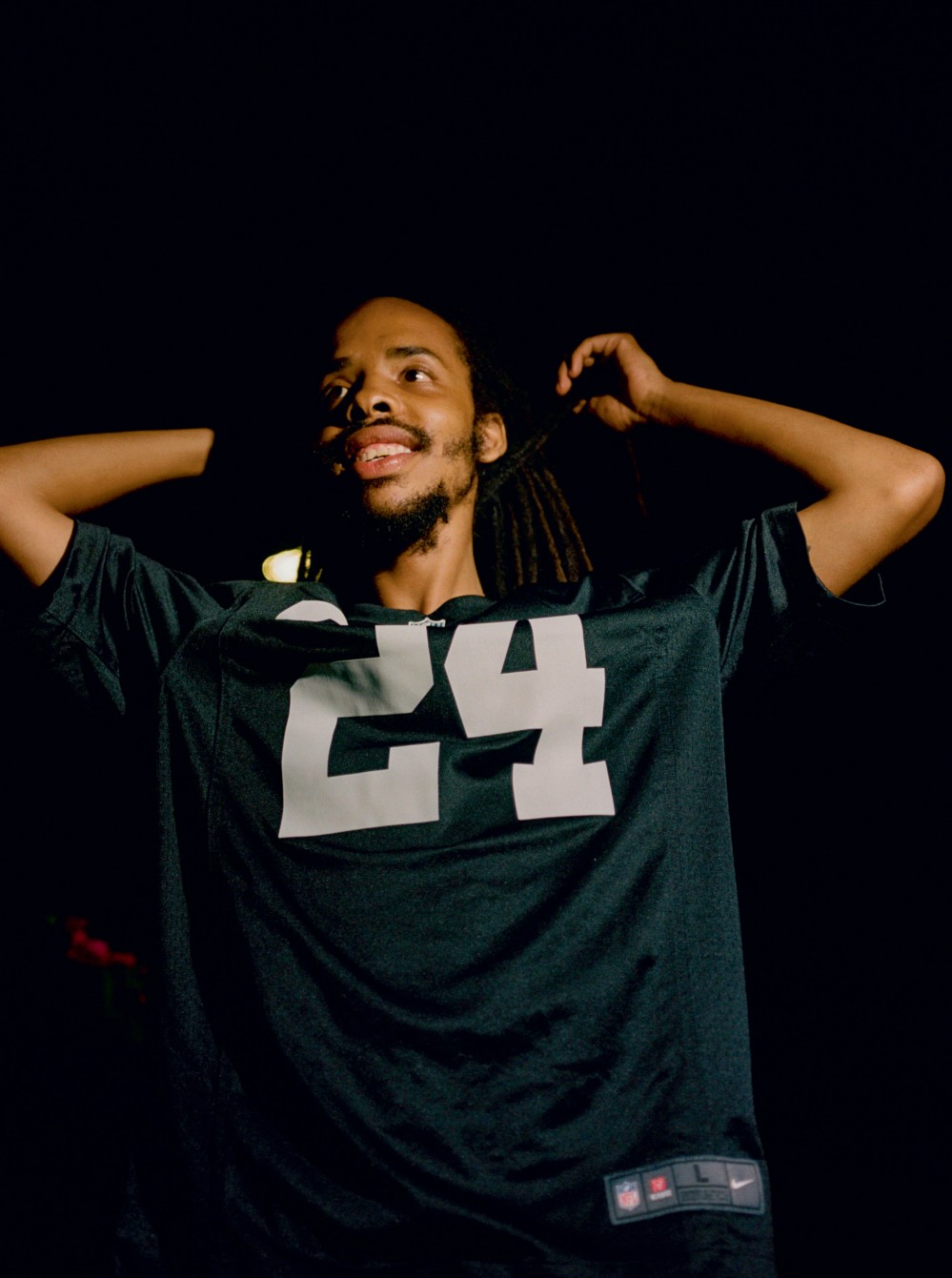
– – –
“It’s crazy, bro. It’s crazy!” he repeats. “You ask people: yo, you know what a UN peacekeeper is? I’d say: it’s funny, cos you motherfuckers want to point the finger at people and call them Third World countries, but you’ve got the military in the streets! People are on the breadline! I think Americans have got to see how ugly it is. We’ve got to see ourselves. And Britain, too! You’re calling me from the mother. You’re calling me from the bank right now!”
He starts to laugh, but Earl has got the UK in his sights. “I think that it’s note-worthy that sarcasm – that specific British type of humour – came from a place that told itself and the rest of the world that it’s one of the most important centres in the world… but contrast that against what Britain has in terms of natural resources. The slice of land that it is. It’s tiny. It’s soggy. Things do not grow. Britain has to speak itself into something that it’s not – which is, no offence, some sort of world royalty. And that’s what I’m saying is funny about sarcasm. So much of the ills of this world are predicated on just straight lies, bro. Straight lies.”
Wrapping up our conversation, Earl is done with lies. He wants clarity, and he wants truth – he wants to do things his own way. “I’ve got a lot of shit, bro. It’s just about putting it together now and presenting it. I think people are going to be excited. It’s a full plate for people. A full meal.”
It’s more than just music, though – he wants to unpack aspects of his soul, elements of his humanity he’s kept hidden from the world, perhaps even from himself. “The more you have to use your shit to survive and protect yourself, the harder it is to access the part of yourself that doesn’t have to be on guard. The peaceful part of you.”
“A higher faculty of God wills joy. Joy that’s not based on success or failure. Decisive joy. That shit is some next level shit, bro. Joy emanating from the will. One day, bro. I’m close!”
– – –
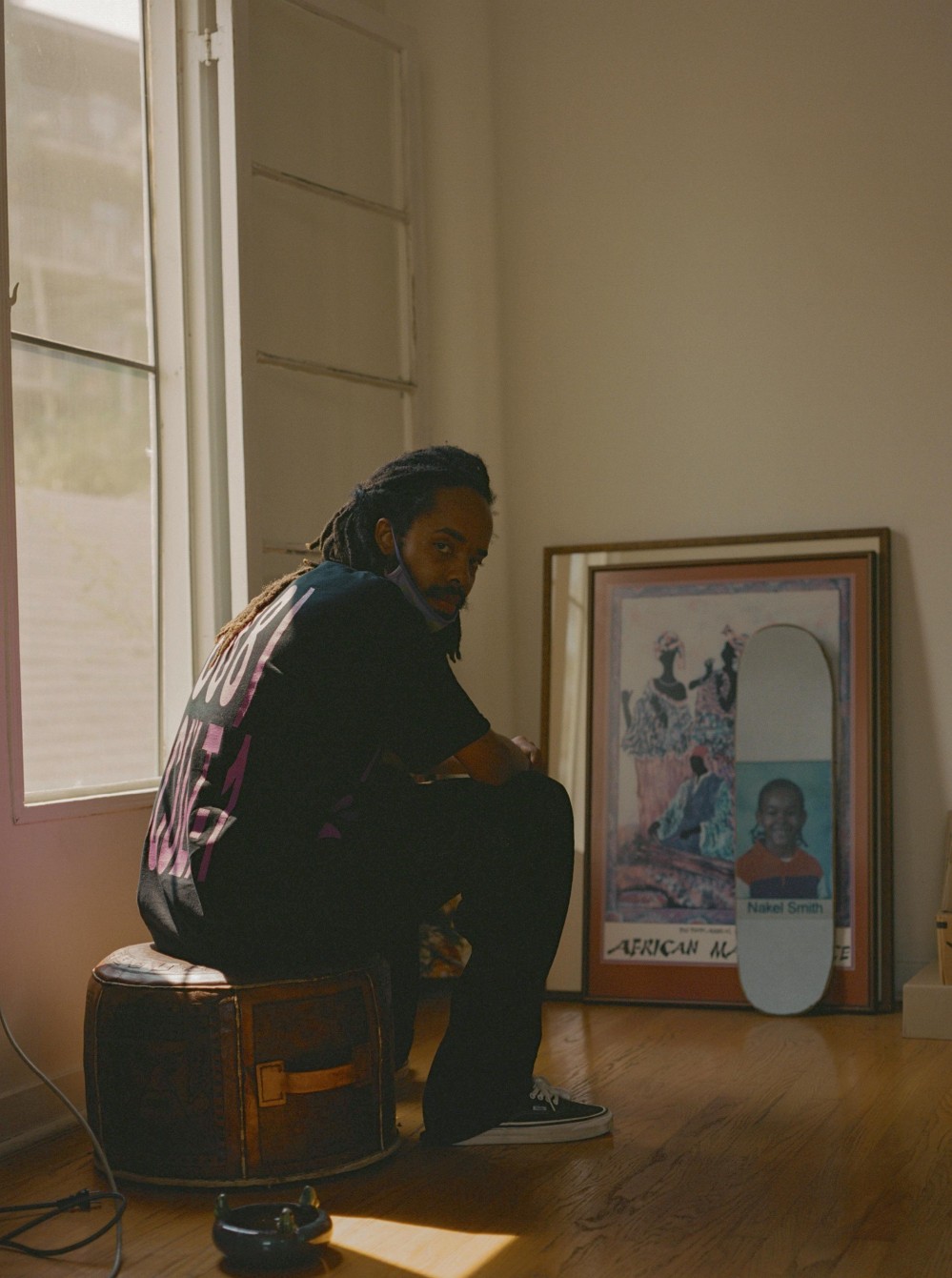
– – –
Words: Robin Murray
Photography: Steven Traylor
Creative Direction: Rob Meyers

